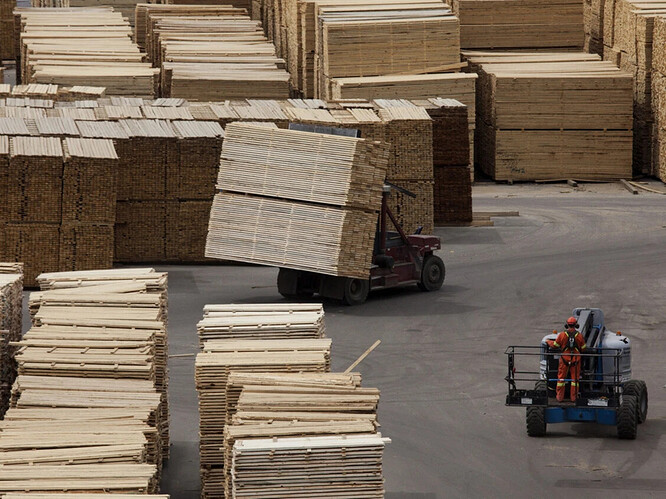By Derrick Penner
The end-of-year gloom hanging over B.C.’s forestry industry will extend into the new year with Tolko Industries’ decision to continue the suspension of operations at two mills through the end of January.
Tolko’s announcement this week adds to Canfor Corp.’s Dec. 19 decision to suspend operations at its Intercontinental Pulp Mill in Prince George for four weeks. In both instances the companies cited “lack of available economic fibre and weak markets” as key reasons for the shutdowns.
“While our goal is to ensure a consistency and stability for all of our operations, the steep decline in lumber demand and upward cost pressures in the province make the decision necessary,” said Tolko Vice-President Troy Connolly in a news release.
“Curtailment” is the industry’s term for a short-term shutdown. Tolko will keep 350 of its employees off the job for an extended period, on top of similar suspensions at other companies, such as West Fraser Timber and Canfor.
Those closures have become evident in B.C.’s trade figures, which saw lumber exports shrink by 10 per cent, or 1.7 million cubic metres, in the first 10 months of 2022 versus the same period of 2021.
By value, the $6.5 billion B.C. lumber producers sold abroad to the end of October was down 16 per cent compared with the same months of 2021. Low prices for B.C.’s key lumber products helped increase the discrepancy between value and volume.
Prices for western spruce, pine and fir two-by-fours, the industry’s benchmark, hovered at $390 US per 1,000 board feet through mid-December, according to the industry publication Madison’s Lumber Reporter. That remains below average production costs of about $500 per 1,000 board feet.
That is a dramatic decline from the $1,734 per 1,000 board feet high that B.C. lumber soared to during the pandemic.
“It’s a cyclical industry and there are always swings (in prices), but this is an enormous swing” that lumber companies are absorbing, said Linda Coady, CEO of the Council of Forest Industries, which represents B.C.’s big lumber producers.
What would help, Coady said, is a resolution to the Canada-U.S. softwood lumber dispute, which leaves B.C. exports to that country subject to anti-dumping and countervailing duties that are being held on deposit for the duration of the dispute.
Coady added finalizing some of the changes the province wants to make to forestry policy that prioritize the ecosystem health of forests over just timber production, with an emphasis on Indigenous leadership in decision making as a measure of reconciliation with First Nations.
“There’s just a lot of unpredictability around access to fibre right now,” Coady said.
Tolko will take an additional 35 million board feet worth of lumber out of the market with the additional closures, which apply to its Soda Creek mill in Williams Lake and Armstrong Lumber operations. The company said it will revisit the closures at the end of January, “to determine next steps.”
Wood chips and sawdust waste from sawmilling are the raw materials for pulp mills, so at Canfor, the accumulation of six periods of suspended production at sawmills over the year “are materially reducing the residual fibre available for pulp mills,” said Kevin Edgson, CEO of Canfor Pulp.
